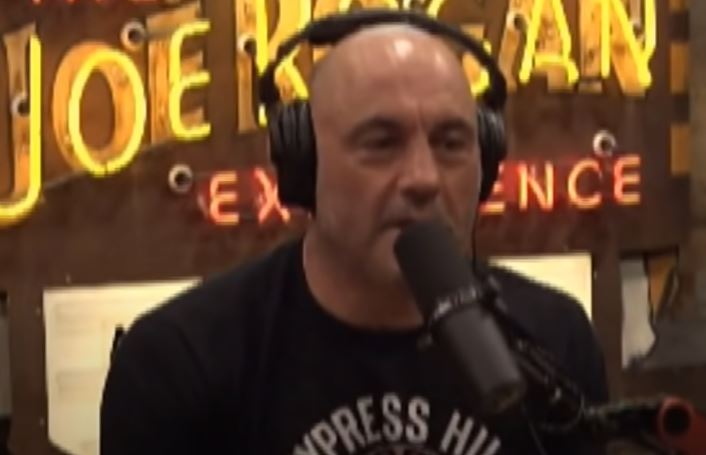Health Ranger Report: Jason Fyk says Big Tech, US courts misinterpreted Section 230
01/18/2023 / By Kevin Hughes

Social media freedom activist Jason Fyk claimed Big Tech and American courts misunderstood Section 230 of the Communications Decency Act of 1996.
During his appearance on the “Health Ranger Report,” Fyk told the Health Ranger Mike Adams that Section 230 protects internet companies from any liability when they fail to take down potentially harmful content. It also authorizes them to take down content. However, Big Tech has used Section 230 to silence voices it does not like. (Related: Why it’s time to REPEAL Sec. 230 of the CDA that allows social media giants to selectively ban voices they don’t like.)
Fyk, founder of the Social Media Freedom Foundation (SMFF), recounted the story of how Facebook used its authority under Section 230 to silence him.
After making a lot of money in advertising and gaining an audience of almost 38 million Facebook followers, the social media platform owned by Mark Zuckerberg saw him as a threat and took his pages down. A few months later, Fyk contacted another advertiser he was close to in a bid to get his pages reinstated. The SMFF founder discovered that said pages would only be restored if his close associate owned them.
“Ultimately, they ended up wiping my business,” he said, adding that he and his attorney Jeff Greyber caught Facebook “red-handed.”
Fyk also pointed out that the same content taken down was essentially the same that was restored. He mentioned the clear double standard – the same content that supposedly “violated the rules” while in his hands was perfectly acceptable in the hands of another person.
“So we knew that it had nothing to do with my content. We’ve made that very clear to the courts that my case has absolutely nothing to do with any kind of improper immoral content at all,” he told Adams, adding that he went to court and sued Facebook in 2018. Unfortunately, the court dismissed his case.
Fyk: Courts had own interpretation of Section 230
Fyk further explained: “The protections that were given under Section 230 were to remove offensive content. The problem with that is that the courts have kind of interpreted [it] so that they can remove anything objectionable. [But] that’s what a portion of the law says.”
Adams was not surprised by Fyk’s revelations, noting that many other laws have been misinterpreted on purpose and abused through the years. The Natural News and Brighteon.com founder also said that Big Tech has unlimited funds and can pressure courts and bribe judges to get what it wants.
According to Fyk, Section 230(c)(1) – which talks about the treatment and not the immunity of the publisher or the content provider – was misinterpreted by the courts. He mentioned how the courts said, “a publisher” instead of “the publisher.”
Fyk mentioned that in the English language the word “the” is called a definite article and it defines who “the publisher” is, but most courts have been stuck on what “a publisher” does. He noted that the actual law doesn’t say “a publisher” but “the publisher.”
“They converted it. They changed the actual text and law. But if you change it back, it makes sense. Again, they didn’t quote the actual law. They went off on their own path. They made a mistake and in doing so, they created this mountain of questionable precedent,” Fyk explained. “[The judges] did not do what Congress intended. They didn’t read the law for what is says, they just went off in their own sort of direction.”
Visit Censorship.news for more stories related to censorship.
Watch the full conversation between Mike Adams and Jason Fyk regarding Section 230 below.
This video is from the Health Ranger Report channel on Brighteon.com.
More related stories:
DOJ: Here’s our plan to hold online platforms accountable for ‘unlawfully censoring’ speech.
Sources include:
Submit a correction >>
Tagged Under:
banned, biased, big government, Big Tech, Censorship, Communications Decency Act, conspiracy, Facebook, First Amendment, Health Ranger, Health Ranger Report, immunity, Jason Fyk, meta, Mike Adams, publishers, Section 230, Social media, Suppressed, tech giants, Tyranny
This article may contain statements that reflect the opinion of the author
RECENT NEWS & ARTICLES
COPYRIGHT © 2017 BigTech.news
All content posted on this site is protected under Free Speech. BigTech.news is not responsible for content written by contributing authors. The information on this site is provided for educational and entertainment purposes only. It is not intended as a substitute for professional advice of any kind. BigTech.news assumes no responsibility for the use or misuse of this material. All trademarks, registered trademarks and service marks mentioned on this site are the property of their respective owners.



















